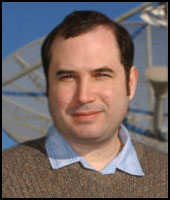
University of Arizona (1987)
Bachelor of Science – Physics & Astronomy
University of Washington (1993)
Ph.D. – Astronomy
University of Texas, Austin
University of Washington
Post Doctoral
Iowa State University
Assistant Professor – Physics & Astronomy
Grove City College, Grove City, Pennsylvania
Associate Professor – Physics & Astronomy
Discovery Institute’s Center for Science and Culture
Senior Fellow
We’re made from the dust of Earth and to dust we will return. Life is not just an ephemeral dross clinging to an inert surface. Life, rocks, and the atmosphere interact in a complex web of feedback loops reminiscent of the classic dilemma of the chicken and the egg. Life needs a habitable planet to exist, but simple organisms seem to be necessary ingredients for making a habitable planet.
James Lovelock even goes so far as to call Earth’s geophysical and biological processes a type of planetary physiology, because, like an animal’s metabolism, our planetary environment remains relatively stable despite changing external conditions. But the analogy goes deeper since both systems use the special properties of carbon and water.
Because carbon and water are so well suited for life at the scales of molecules, cells, organisms, and planets, environments without enough carbon and water are very probably lifeless. Once we recognize the high degree of fitness of carbon and water chemistries for life, we must also accept the constraints this places on a habitable planet. A planet less flexible than Earth at regulating its climate with water and carbon will surely be less habitable.
Of course, even simple life requires far more chemical elements than carbon, hydrogen, and oxygen. A tiny bacterium needs seventeen elements and humans need twenty-seven. In general, the larger and more complex the organism, the more diverse the proteins and enzymes it requires. While most of the essential elements are concentrated enough in seawater for life, the oceans aren’t an adequate source of all elements. For example, the atmosphere is the primary source of nitrogen, and the continents are the primary source of several mineral nutrients, including molybdenum. This suggests that planetary environments lacking a nitrogen-rich atmosphere and continents may not be able to support a robust biosphere.
Apart from these essential elements, life requires a stable, long-term energy source. The basic sources are stellar radiation, geothermal heat, and chemical energy. An environment needs enough energy to maintain liquid water, but even with liquid water, an environment with weak energy sources diluted over its surface won’t be able to support a lush biosphere. For that, you need lots of energy…
Life relies on chemical energy for its immediate metabolic needs, and chemical energy is all about the exchange of electrons. The most energy is released when elements located on opposite ends of the periodic table exchange electrons.
Oxygen is second only to fluorine in the amount of chemical energy released when it combines with other elements. Hydrogen, and carbon combined with hydrogen, or hydrocarbons, are the best substances to combine with oxygen. All complex life forms use such oxidation reactions (other common reactions yield far less chemical energy). And not incidentally, the products of oxidation are water and carbon dioxide, the nontoxic and essential components of the climate regulation system. So hydrogen, carbon, and oxygen, together, offer the best source of chemical energy.
* Guillermo J. Gonzalez & Jay W. Richards, The Privileged Planet (Washington, DC: Regnery Publishing, 2004) 36, 37.
The Privileged Planet: How Our Place in the Cosmos is Designed for Discovery
Author: Guillermo J. Gonzalez, Jay W. Richards
Hardcover: 464 pages
Publisher: Regnery Publishing, Inc. (March 2004)
Language: English
ISBN-10: 0895260654
ISBN-13: 978-0895260659
List Price: $29.95
© 2023 Warren L. Johns. All Rights Reserved.
Genesis File is an educational website.
While not a format for debate, the Editor welcomes all good faith contacts.